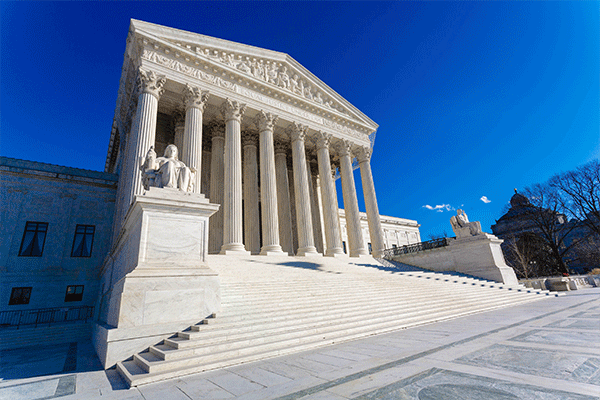
In light of the U.S. Supreme Court’s ruling Thursday that the Muscogee (Creek) Nation’s reservation was never disestablished, state, federal and tribal officials have made a point to publicly promise to collaborate moving forward.
Authored by Justice Neil Gorsuch, the 5-4 majority opinion in McGirt v. Oklahoma specifically charged local officials to work together to address jurisdictional questions that arise now that the state officially does not have prosecutorial authority in felony cases involving American Indians in 11 eastern Oklahoma counties.
The most populous city impacted is Tulsa, with more than half of it located within the reservation boundaries. In a statement, Mayor GT Bynum acknowledged his city’s shared roots with the tribe and reiterated that the concept of a tribal-municipal partnership is nothing new.
“Creek citizens founded Tulsa, and our successes and challenges are shared. They were before the court’s opinion, and they will continue to be. We remain committed to the same strong cooperative relationship we have had for decades with the Creek Nation, and to the shared obligation among all jurisdictions – city, tribal, county, state, and federal – to serve all Tulsans, city and tribal residents alike.
“For most residents and most purposes, recognition of tribal boundaries will not even be noticeable. Importantly, the Court’s opinion does not affect private property ownership. Where there is any jurisdictional uncertainty, we will work with our partners to develop mutually respectful cooperative agreements, such as our Intergovernmental Cross-Deputization Agreement, which has been working well for nearly two decades.”
That commitment was echoed by members of Oklahoma’s delegation to the U.S. House of Representatives in a rare joint statement from all five members.
As Justice Gorsuch reiterated in the majority opinion, the ability to legally create or diminish a reservation, such as the Muscogee (Creek) Nation’s, rests with Congress and requires clear, explicit legislative action.
“We are reviewing the decision carefully and stand ready to work with both tribal and state officials to ensure stability and consistency in applying law that brings all criminals to justice,” the statement read. “Indeed, no criminal is ever exempt or immune from facing justice, and we remain committed to working together to both affirm tribal sovereignty and ensure safety and justice for all Oklahomans.”
Meanwhile, since the ruling was handed down on Thursday, two homicide cases in Tulsa County have already been impacted, thus putting those collaborative efforts into practice.
State proceedings were already underway in one case, which involved the deaths of two Cherokee children who died from heat exhaustion after getting trapped in their father’s pickup truck in south Tulsa. The Tulsa County District Attorney’s office had to drop its charges on Monday after learning that the children were Indigenous.
On Monday, U.S. Attorney Trent Shores, a citizen of the Choctaw Nation, issued a prepared statement in response to inquiries about the case.
“First, as a general matter, the United States does not comment on pending investigations,” he said. “We do our utmost to protect the integrity and confidentiality of federal Grand Jury proceedings, consistent with Federal Rules of Criminal Procedure. Second, let there be no doubt that my team of federal prosecutors, legal support staff, victim specialists, and administrative staff are working around the clock right now to pursue justice and help victims of crime. We are doing so in partnership with tribal, state, and federal law enforcement agencies as well as with the Tulsa County and Creek County District Attorneys and the Muscogee (Creek) Attorney General.
“We want to ensure the citizens of northeastern Oklahoma continue to receive seamless public safety services. Oklahomans have always been good about working together to achieve a common goal. Since the McGirt decision came down, I’ve seen just that – Oklahomans working together to promote continued public safety in this new jurisdictional landscape.”
Criminal charges have already been filed in the other case, in which a Tulsa man is accused of shooting his Cherokee girlfriend in a west Tulsa park Friday.


